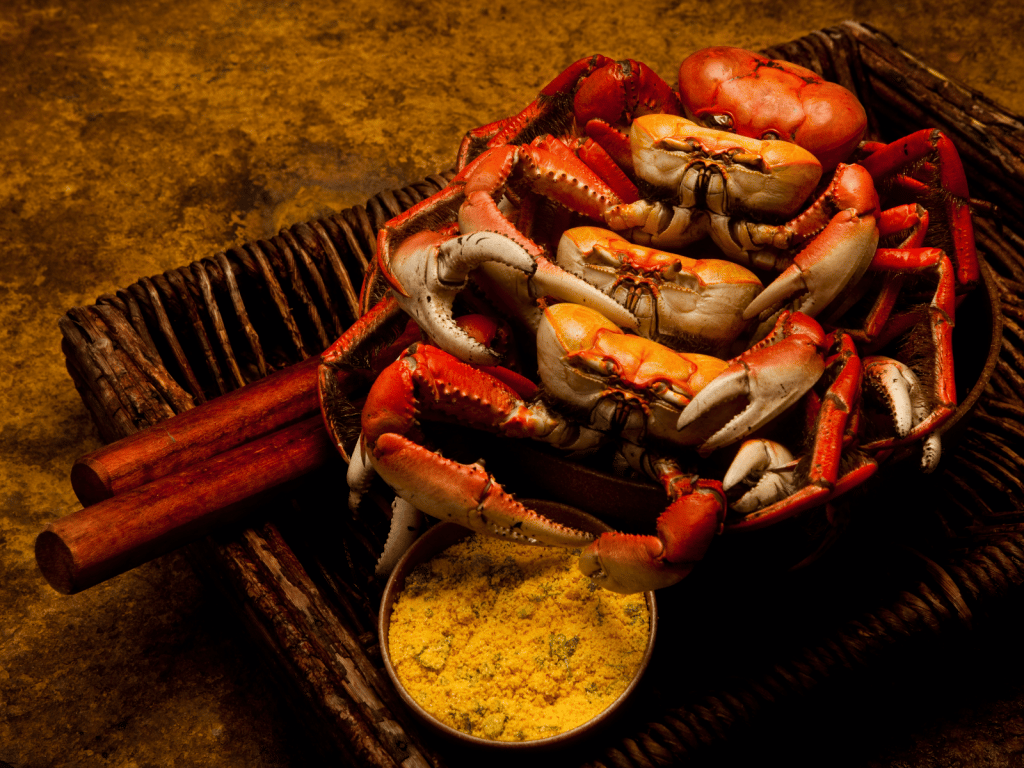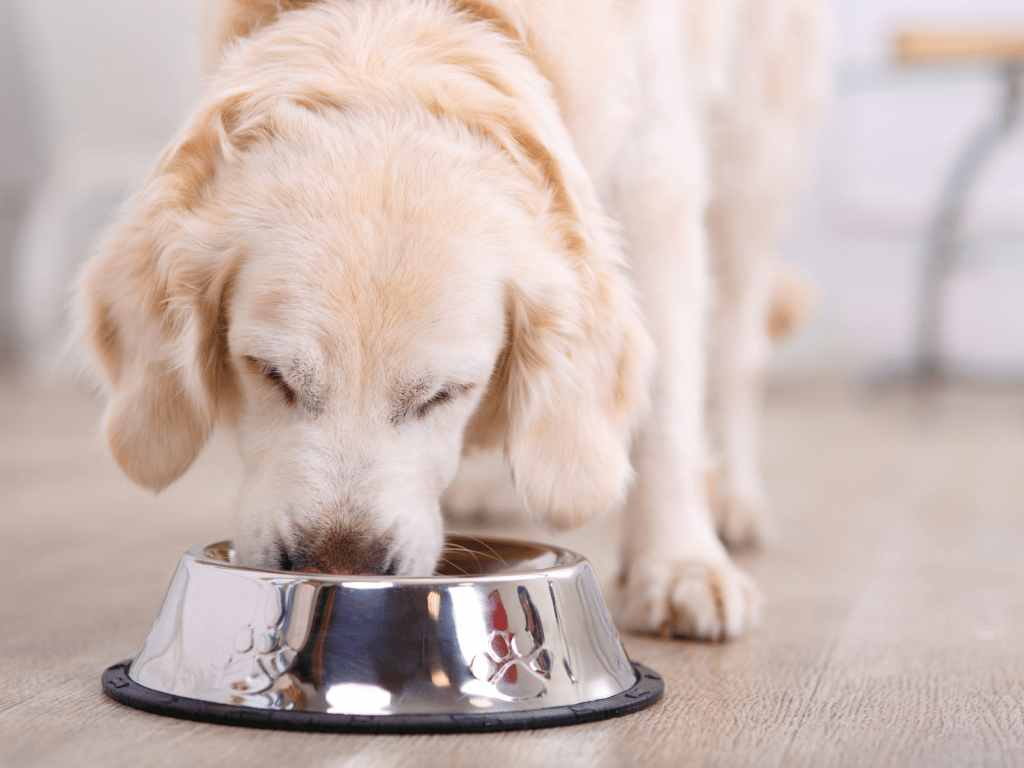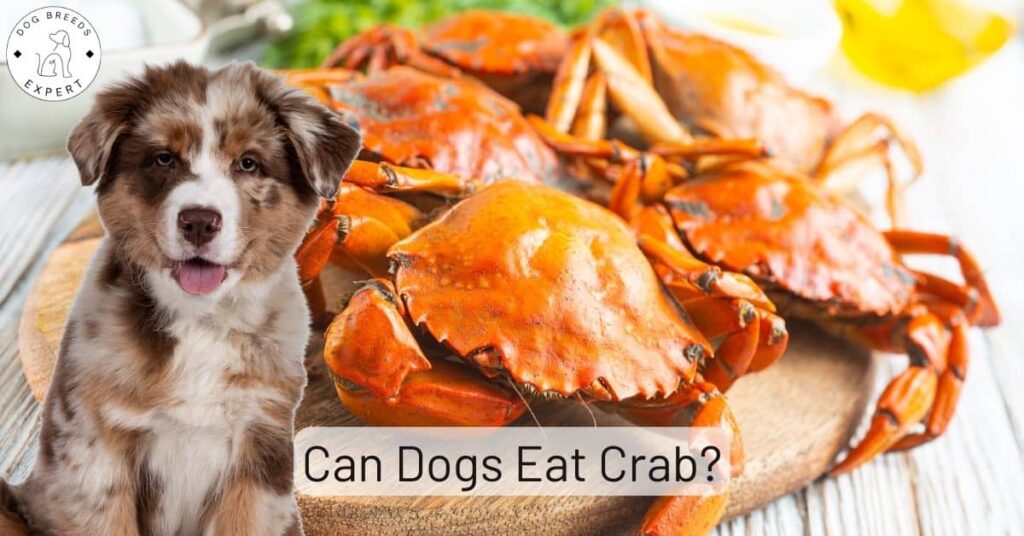“Can dogs eat crab meat” is a question you could ask if you have any leftover crab that you need to consume before it spoils. The majority of the time, feeding your dog a little crab is probably fine, but there are a few potential dangers to be aware of when feeding your dog crab flesh or imitation crab. Don’t feed your dog or puppy until you’ve read this!
You can feed your dog cooked crab meat but because of the high levels of salt and cholesterol included in crab meat, it is not the best kind of meat to feed your dog on a daily basis. This is something that you should think about, and you should consider whether it is worth the risks.
Crab Meat Can Be Beneficial to a Dog’s Diet
Crabmeat, which is high in healthy protein, is beneficial to canine wellbeing. Your dog’s cognitive abilities may be enhanced by feeding it this mussel, which is high in the vitamin B12. Your dog’s skin, nails, and connective tissue may benefit from the protein, omega-3 fatty acids, and amino acids included in crab.

In a strict sense, yes. Dogs may safely eat crab, and it can even be beneficial for their health. Lean protein, such that found in crab flesh, is crucial to a dog’s well-balanced diet. Vitamin B12 and zinc are two of the minerals and vitamins found in crab that are particularly important for canines. Zinc aids in metabolic regulation, while vitamin B12 promotes healthy brain function in canines. Crab, like many other seafoods, is rich in the omega-3 fatty acids that aid with renal function, protect against cardiovascular disease, keep a dog’s skin and hair healthy and glossy, and help keep a dog’s weight down.
Only Cooked Crab Meat is Safe
Parasites in raw crab may cause a wide range of unpleasant health problems. The shell is very pointed and might cut your dog’s mouth or stomach, and swallowing even little fragments of shell or claw could be fatal.
Your dog should never be fed crab shells. Dogs may safely consume crab flesh, however ingesting the shell can be extremely harmful or even deadly. Dogs might suffer severe digestive tract damage from ingesting crab shells because of their indigestible nature.
Crab Products
Buttery crab legs and crab cakes are a human favorite, but they may be dangerous to your dog due to the seasonings and other additives. Just offer your dog basic, baked crabmeat.
Imitation Crab Sticks
It is doubtful that a dog would get ill by eating a little bit of an imitation crab stick as a treat, since they are not harmful to canines. However, we do not suggest giving your dog any crab sticks as a treat.
Starch and ground white fish are common elements in imitation crab sticks. It’s a fast dish that’s been heavily processed and maybe has some harmful ingredients added to it.
There isn’t much nutritional value for the dog in eating crab sticks since both real and imitation crab sticks lack a nutritious profile. Dogs need a certain number of calories every day to be healthy, and it’s crucial to provide them with just that. Better options than imitation crab meat exist for rewarding your dog.

Health Issues
Loose Stools
Many canines have an adverse reaction to crab because of the high iodine content. As a consequence, your dog may have stomach pain, loose stools, and fatigue after consuming this healthy protein. Be careful giving your dog crabs for the first time. Do not overfeed it. in fact, as a general rule, when feeding a dog a new type of food, it should always be done starting with just a small amount.
Researchers have discovered and identified new forms of the diarrhea-causing toxins found in mussels, oysters, and crabs. These versions, which were discovered in variable quantities across the various kinds of seafood analyzed, are thought to be less virulent than the forms of diarrhea toxin we are previously acquainted with.
Hypernatremia
Crab has a high cholesterol and salt content. Dogs have a hard time digesting both if they consume them in excessive numbers. Hypernatremia or an imbalance of electrolytes are possible outcomes.
More severe health issues may develop if this condition is ignored. Blood pressure in dogs may rise due to hypernatremia, which affects blood flow. Causes cardiac problems to develop over time.
Infections Caused by Bacteria and Parasites
Don’t ever give your dog any kind of raw crab flesh due to the high risk of parasites and germs in their digestive tract. These may weaken your dog’s immune system and lead to potentially fatal illnesses.
It’s imperative that the crab flesh be cooked thoroughly. It has to be heated to at least 145 degrees (F) inside. It’s important to make sure the crabs you give your dog are fully cooked, since uncooked crabs might still carry parasites that could cause illness.
Allergies
Certain canine breeds are known to be crab-sensitive. Allow your dog to try a little bit of each kind of food to see whether he has this issue. Keep an eye out for allergy symptoms subsequently,
Seafood is Not Generally Good For Dogs
A few nibbles won’t hurt your dog, but it’s not a good idea to serve it to him as a whole meal. The flesh of lobsters is heavy in salt and cholesterol, shrimp often contain hazardous poisons, and crab meat has an exceptionally high iodine content. Lobsters. Even in situations when eating shellfish was a one-time indulgence, there is still a possibility of having an allergic response to it.
Fish is not inherently dangerous for canines, but the preparation methods humans employ may make it such that it is. Fish that has been prepared with an excessive amount of oil may give dogs stomach trouble and potentially lead to more severe conditions like pancreatitis if they consume it. Additionally, seasonings have the potential to create severe health issues in dogs, particularly if they are made with poisonous components like garlic.



